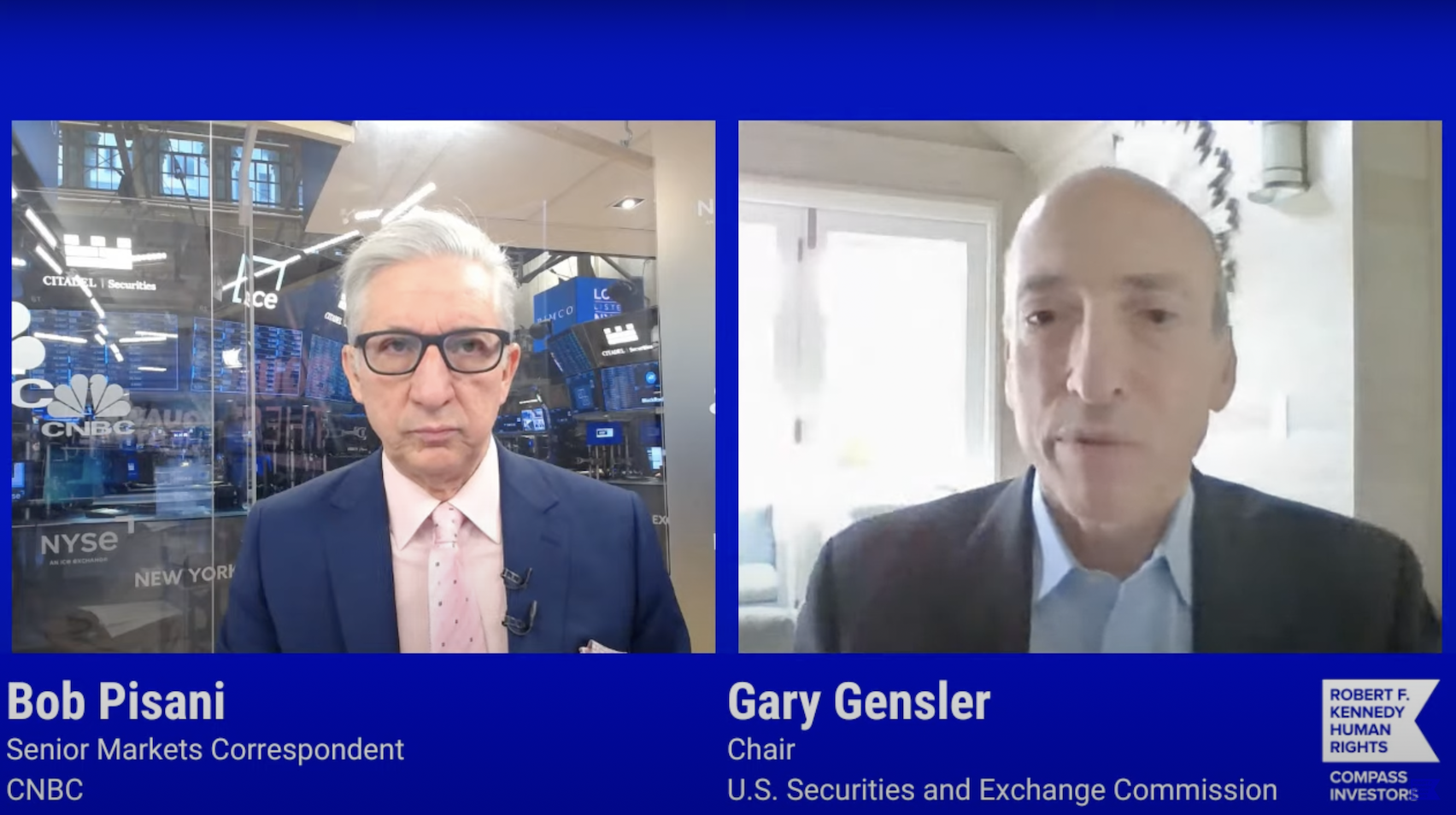Gary Gensler, the head of the US Securities and Exchange Commission (SEC), has once again called for more investor protection in the crypto markets.
Gensler made the corresponding statements at the Robert F. Kennedy Human Rights Compass Investor Conference, in which he participated by video conference. At the same time, the head of the SEC first reiterated that his authority is already using its possible resources to regulate crypto projects and crypto exchanges, because often these would promise returns that are “too good to be true”. According to Gensler, the majority of all cryptocurrencies fall under the jurisdiction of the SEC, which is why they are subject to the same regulations as securities.
“Especially the crypto savings platforms, which operate in a similar way to banks, which say: ‘Give us your crypto, and you will get a hefty return on it.’ […] But how can anyone offer a 4.75% return in today’s market without disclosing how this works?“as the head of the Securities and Exchange Commission points out.
To which he appends:
“If it seems too good to be true, then it’s probably too good to be true.“
 SEC CEO Gary Gensler talks at the Compass Investor Conference
SEC CEO Gary Gensler talks at the Compass Investor Conference
The comments could be addressed directly to the crypto-savings platform Celsius Network, which is probably on the verge of insolvency at the moment and has imposed a temporary withdrawal freeze for this reason. German investors are also affected by this measure, because in cooperation with Celsius, the Berlin-based Neobank Nuri has offered a Bitcoin income account, which has now also been temporarily shut down. If the insolvency should actually come for Celsius, then the German Nuri investors could in the worst case completely lose their invested Bitcoin (BTC).
Meanwhile, the SEC boss admits that he finds blockchain technology exciting, but whether his authority will wave through a long-awaited Bitcoin index fund (ETF) in the future, Gensler initially leaves unanswered. Instead, he reiterates his warning that the majority of crypto projects are “likely to fail” and that high returns are often just empty promises.








